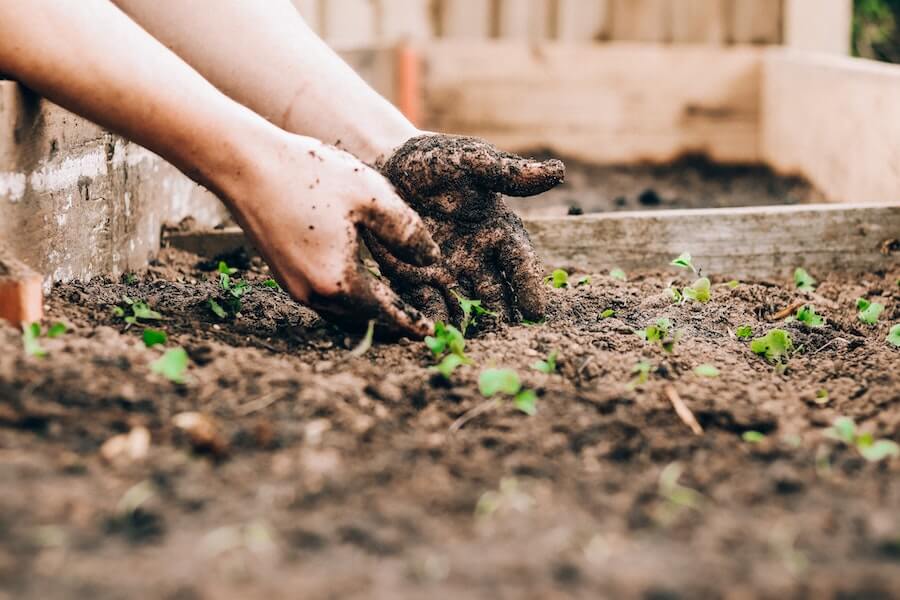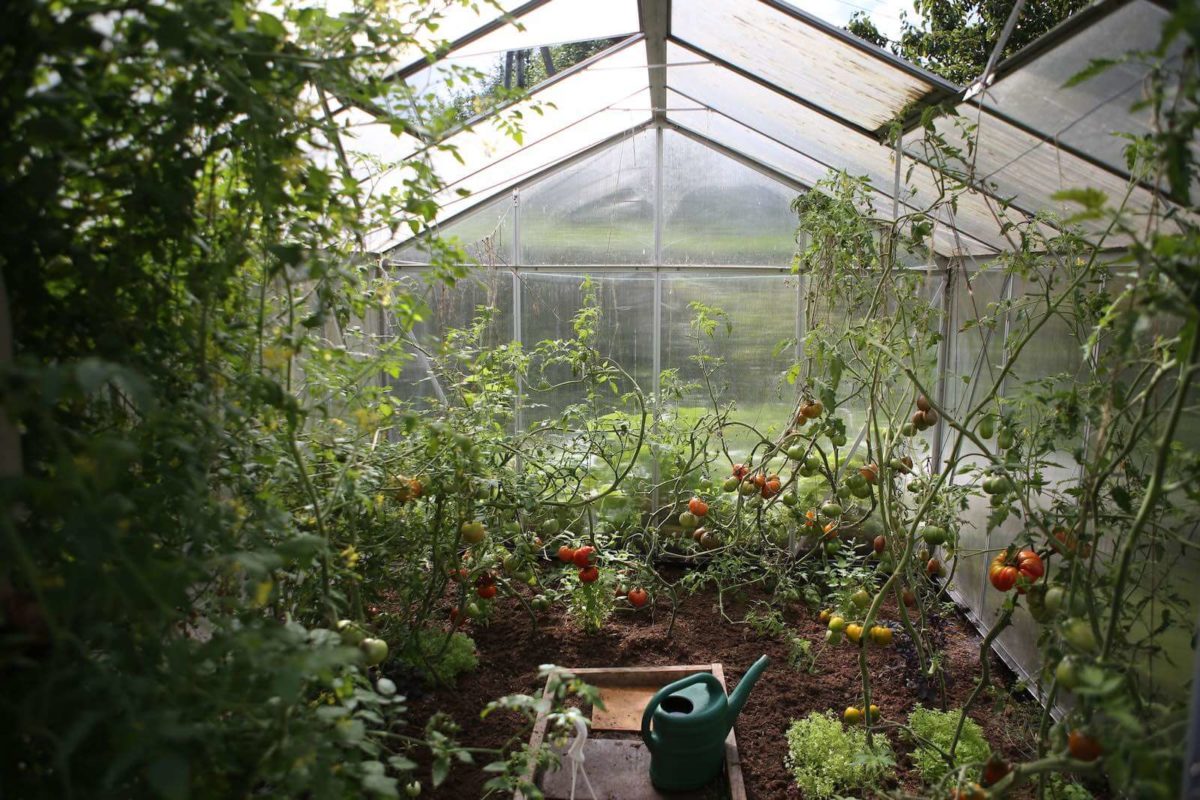Growing your own vegetables is a great way to have fresh, healthy food every day without breaking the bank. You can also enjoy the satisfaction of knowing that you are feeding yourself with your very hands!
How to get started with your own vegetable garden
If you are new to growing vegetables, there are some essentials that you should know. We’ve tried to break it down below so that you can be successful bringing your fresh vegetables from your home garden alive.
Choosing the right location
Vegetables need 6-8 hours of sun each day, so chose a spot where they will receive plenty of sunlight.
If you only have shady spots in your yard, then consider rotating what vegetables you grow each year to make the most of the sun.
Preparing the soil
Good soil is key to healthy plants, so be sure to test your soil and add amendments as needed. Vegetables need a lot of nitrogen, phosphorus, and potassium, so adding compost or manure is a good way to give them what they need.
Choosing the right vegetables
Not all vegetables are easy to grow, so do some research before you start planting. Choose varieties that are suited for your climate and growing conditions.
Watering and fertilizing
Vegetables need regular watering and fertilizing to stay healthy. Be sure to check the soil moisture levels often, and pump fertilizers when the plants need them.
Harvesting and preserving
Ensure that you harvest your vegetables on time to get the most flavor and nutrition from them, and can or freeze extras for later use.
Key benefits from growing your own vegetables
There are many benefits to growing your own food, whether you have a small patio or an acre of farming land. For one, you know exactly what has gone into the cultivation of your crops. No mystery ingredients here – just good, old-fashioned soil, water, and sunshine.
And if you’re growing organically, you’re also doing your bit to help reduce chemical runoff and soil erosion. Another advantage of homegrown produce is that it often tastes better than supermarket fare. This is because vegetables start to lose their flavour once they’re picked.
Top 7 reasons to create a vegetable garden
- Growing your own vegetables eliminates the need to buy produce from a grocery store.
- It can be cheaper and more convenient, especially if you grow in containers on a balcony or patio. Growing your own food can save money!
- You’ll know exactly what’s gone into growing your food.
- Growing your own vegetables is better for the environment because it reduces the use of pesticides and fertilizers that are harmful to wildlife. It’s also more nutritious food.
- Vegetables grown at home can taste better than those bought at stores because they’re fresher and not exposed to chemicals like ethylene gas which causes them to ripen too quickly.
- Gardening is therapeutic – it helps reduce stress levels by giving people something productive to do with their time! A garden also provides space for children to learn about plants, growth, responsibility etc.

What you will need in order to grow your own vegetables
The first thing you will need is the desire to grow your own vegetables. If this isn’t enough, here are some other things that are crucial for succeeding with growing food.
- Patience. When starting your own vegetable garden, be patient with your plants. Remember that vegetables are living things and may not grow the way you expected them to.
- Plants. Obviously, in order to grow your own vegetables you will need plants! It’s best to choose plants suited for your climate and growing conditions because this will make it easier for them to thrive.
- Water and fertilizer. Vegetables need regular watering and fertilizing to stay healthy, so be sure you have a good water source and invest in some quality fertilizers.
- Tools. A few essential tools will make planting and harvesting your vegetables easier:
- A spade or digging fork for loosening and turning the soil
- A hoe for weeding
- A hand trowel for planting and transplanting seedlings
- A pair of scissors for harvesting vegetables
- Storage. Once you’ve harvested your vegetables, you’ll need to find a way to store them. If you have a root cellar, this is the perfect place to keep them cool and humidity-free. Other options include an unheated garage, a cool, dry basement, or just keeping them on your porch.
Key dos and don’ts for growing your own vegetables
Do choose the right plants. Make sure that they are suited for your climate and growing conditions before you buy them! You can buy seedlings from your local gardening store or plant seeds yourself.
Don’t start too big. It’s best to begin small and grow your garden as you gain more experience – this way, if something goes wrong it won’t be such a disaster! Also, if you’re just starting out with vegetables it can be difficult to know what’s normal and what’s not – the garlic that’s thriving in your garden might not do so well elsewhere.
Do water your plants regularly. Vegetables need a lot of water to stay healthy, so make sure you’re watering them every day (or as often as necessary).
Don’t over-fertilize. Excessive fertilizing can actually be harmful to your plants, so only fertilize when they really need it. If you have an overabundance of fruit or vegetables, consider giving some to your neighbours or donating them to a local food bank.
Don’t waste the soil after planting. When transplanting seedlings, you can use the leftover soil for filling in gaps in your garden bed, but don’t just dump it on the ground – this will compact the soil and make it difficult for plants to grow.
Do be careful with pests and diseases. If you notice that your plants have been infected with a disease or are being eaten by pests, take action right away! There are many products available to help you get rid of these problems.
Do harvest your vegetables at the right time. Some vegetables need to be harvested before they’re fully ripe, while others can be picked when they’re almost fully ripe and will continue to ripen indoors.
Do pick them yourself! It’s always best to harvest your own produce rather than buying it from a store – you get exactly what you want and it also tastes so much better!
Don’t waste the vegetables after you’ve harvested them. Your freshly picked veggies are perfect for making delicious homemade soups, casseroles, salads etc. If you end up with too many vegetables to handle, share some with your neighbours or donate them to a local food bank.
Conclusion
Growing your own vegetables can be a fun and rewarding experience, it also adds to your level of self sufficiency and is great for your health! By following the key dos and don’ts listed in this article, you’ll be well on your way to having a thriving vegetable garden.
Enjoy harvesting your delicious home-grown produce and be sure to share with your friends and neighbours!
FAQ on growing your own vegetables
Yes, it is definitely worth it to grow your own vegetables! Not only does it save you money, but you also get to eat the freshest, most delicious produce possible.
There are many types of vegetables that you can grow in your home garden, including tomatoes, carrots, zucchini, lettuce, and potatoes.
You will need well-drained soil in order to grow vegetables. If your soil is not well-drained, you can improve it by adding sand or potting soil.
Yes, you can just plant some seeds if you want to grow vegetables for personal use. However, it is advised that you start with small plants because it will be easier for you to maintain them and they are also less of a hassle to transplant.
Vegetables need a lot of water in order to grow properly, so you should make sure that they are well watered every day (or as often as necessary). If the soil is too dry, the roots will not be able to absorb nutrients and your vegetables will suffer.
It’s good for the environment because it reduces our reliance on large-scale agriculture. Many types of food are shipped across the world before they even reach your grocery store, so growing your own vegetables will prevent unnecessary carbon emissions from being released into the atmosphere.
Yes, organic produce is definitely better! Studies have shown that organic produce contains more vitamins and minerals than conventionally grown fruits and vegetables. In addition, organic foods do not contain any harmful pesticides or fertilizers.

5 replies on “Why you should grow your own vegetables”
[…] how problematic fruit flies can be. They seem to appear out of nowhere to ruin your hard earned and home grown […]
[…] winter may seem like an off-season for gardening, a few cool-season vegetables grow best in winter. Besides, winter allows jump-starting the growing season by planting cold-hardy […]
[…] This principle is about using renewable resources and making the most of your resources. You can do this by harvesting rainwater, using solar energy, or growing your own food. […]
[…] in multiple cropping are varied and plentiful. You can cultivate your favorite plants, fruits, and vegetables to create your perfect […]
[…] is basically pollinating all of the plants in your area, giving you more fruits and vegetables than if they weren’t […]